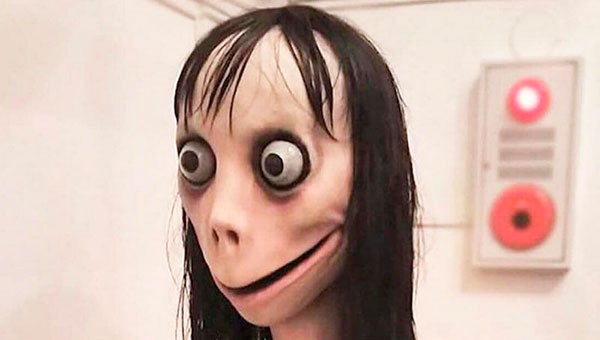Counselor: MoMo scare reminder to mind content
Published 2:00 am Thursday, February 28, 2019

- An alleged video hidden in dhildren’s online content has parents worried.
The “MoMo Challenge” is scaring parents and taking the internet by storm, but local children’s behavioral therapist Lisa Patterson is not convinced that the video is really out there.
The challenge is a video of a haunting woman with a wide smile and bulging eyes that allegedly pops up on popular children’s sites and video games like YouTube Kids and Fortnite, offering children instructions on how to take their own lives.
“First of all, I am not convinced that it is out there,” Patterson said. “I’m not going to say that it is not out there, but I have done my research and you have people saying that it is there and at first I even bought into it. After doing more research, I’m starting to ask myself if this is even real.”
Despite her skepticism, Patterson still said that parents should be concerned.
“Whether it’s real or not real, it shouldn’t matter,” Patterson said. “Parents need to start thinking of the internet as a community. They wouldn’t let their children walk around town and tell them they could walk around wherever they want, talk to whoever they want or meet whoever they want. They need to pay attention to what they are viewing.”
Patterson said that she assumes YouTube Kids is a safe thing, but she still monitors what her granddaughter watches.
“Everything that I have watched I haven’t been able to find this ‘MoMo,’” Patterson said. “But even if this is another Internet hoax, this is just another reminder to parents to monitor your kids. There are creepy people out in the real world and they are on the internet, too. It is much easier to be in contact with them on the internet because they have anonymity.”
Patterson said kids are a target for these suicide videos and video games because they aren’t able to reason like adults.
“Children are easy targets,” Patterson said. “They are not little adults. We all sometimes fall into the trap of thinking of kids as little adults, but their minds are not developed. They are not developed enough to be able to reason with this kind of stuff.”
The way that kids deal with these videos might depend on their age, Patterson said.
“Younger kids, probably ages eight and under, will probably tell their parents if they see the video,” Patterson said. “Middle school aged kids may or may not tell. They may deal with it in their own way like by talking with their peers. Parents should still be talking with them and asking them about what they see.”
Patterson said that along with the age, a child’s mental stability also plays a role in how they might handle seeing “MoMo.”
“Children with a healthy mental state and supportive parents are going to see these suicide challenges different from a child who is already depressed or already dealing with post traumatic stress disorder,” Patterson said. “The child with a healthier mental state will probably not be as affected by the video, but a child who is already dealing with mental illness may see the video as an actual challenge.”
She said that parents should be on the lookout for anything that may cause their child harm.
“If they are watching and paying attention to what their kids are doing in the social internet community, they may find more than just ‘MoMo,’” Patterson said. “So parents need to be aware.”
Andalusia local Kimberly Johnson asked her son if he knew “MoMo” and was surprised at his affirmative response.
“I don’t know too much about ‘MoMo’ and I even tried to find the original YouTube video but haven’t had any luck,” Johnson said. “My son is autistic so I try and keep a close eye on him.”
Johnson said she’s worried “MoMo” and other viral suicide challenges might convince her son to do something harmful.
“Especially with him and his disability I worry that he isn’t always able to decipher all good and bad,” Johnson said. “We closely watch what he watches on YouTube, he does not watch Kid’s YouTube, so that means that ‘MoMo’ is not only on Kid’s YouTube as some parents think.”
Johnson said that it is unlikely that her son would ever listen to horrific directions, but parents should still be aware of what their children are watching.
“We are very lucky that he is a good child and is very loving, so it is unlikely he would ever listen to such horrible directions, but as with all children you have to make sure that you as a parent has more influence than a video,” Johnson said. “Today that can be hard, but we are very active with my son on actions and what is acceptable in our daily lives.”
The “MoMo Challenge” hit the news in mid-2018 with a report that a 12-year-old Argentinian girl had been motivated by the “Momo Game” to hang herself from a tree in her family’s backyard near Buenos Aires.
The deaths of two young men in India were also reportedly tied to the “Momo Game Challenge” in August 2018, although again no definitive link was documented. Around the same time, the suicides of a 12-year-old girl and a 16-year-old boy in Barbosa, Colombia, were also reported as potentially being linked to participation in the challenge.



